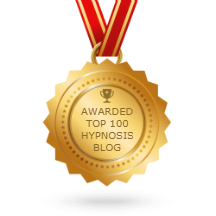by Hervé Boisdé
When I previously wrote a blog about the Mind/Body Connection, I talked about how the subconscious mind is responsible for much of the body’s processes and we can influence the body, both positively or negatively, with our thoughts. Neuroscience is at the very forefront of medical science and we are continuously being stunned at how powerful the mind is for everything that we do and experience. A report available in the US Library of Medicine National Institutes of Health (published in 2006) claims that while only a recent phenomenon, research has shifted to studying the mind/body connection effects in medicine and has become a much more mainstream and accepted view of healing the body.
Although the understanding that emotions affect physical health dates as far back as the second-century physician Galen and the medieval physician and philosopher Moses Maimonides, modern medicine has largely continued to treat the mind and body as two separate entities. In the past 30 years, however, research into the link between health and emotions, behaviour, social and economic status and personality has moved both research and treatment from the fringe of biomedical science into the mainstream.
That being said, most of the medical techniques still used today were developed when the body was being treated separately from the mind. It’s really still only “holistic medicine” that has developed a radically different approach to treatment. Modern medicine that employs either invasive treatments or that relies on pharmaceutical drugs still has it’s place and can be very effective but perhaps even strictly body-oriented approaches can be enhanced with techniques that focus on the mind. It has been estimated that between 75 - 90% of all visits to the doctor’s office are for stress-related symptoms. Just by reducing stress, the average person can greatly improve their health and well-being. This probably comes as no big surprise. But what could be surprising is how the mind can actually be used to help heal the body from illnesses in ways that traditional medicine can not.
Traditional medicine excels at treating acute illness. Acute conditions are severe and come on suddenly, like a broken bone or appendicitis. Most visits to the ER deal with these kind of medical problems. Where traditional medicine struggles is with chronic conditions. A chronic condition, by contrast is a long-developing syndrome, such as osteoporosis, diabetes or asthma. In most cases chronic conditions are managed, usually with prescription drugs, rather than cured.
A study published November 2018 found that hypnotherapy is effective for the treatment of Irritable Bowel Syndrome (IBS). They used a sample size of close to 500 patients in 11 hospitals to do the study and found that “Hypnotherapy should be considered as a possible treatment for patients with IBS in primary and secondary care. Furthermore, group therapy could allow many more patients to be treated for the same cost. “
There have been other studies that showed that hypnosis could speed up the healing of bone fractures, help relieve chronic neck pain, improve chronic and severe asthma symptoms, and 2 meta-analyses even found that hypnosis could effectively control cancer symptoms. It’s clear that when more studies are conducted and the research money is spent, many more effective treatments will be found.
As healthcare costs are spiraling out of control, anything that helps to speed up healing and cut costs will be valuable to the medical community. One study on the effects of hypnosis on breast cancer biopsy surgery found that patients experienced 53% less pain, 74% less nausea, 46% less fatique, and 74% less emotional upset from the surgery. The benefits to the hospital included: less drugs needed, less analgesia needed, shorter surgery time, and an average cost savings of $772 per patient! All this from one single hypnosis session before the surgery. Imagine the benefits for other types of medical procedures and surgery, or if included to heal other illnesses that require hospital stays. Self-hypnosis for pain management instead of dangerously addictive opioids is also being proposed by a Stanford researcher.
We are just beginning to scrape the surface in terms of the possibilities of using the mind to treat the body. Hypnosis and hypnotherapy are already showing huge benefits for medical support and allowing the body to heal itself. In the meantime it’s important to fund research that will help convince the people in charge of our institutions that hypnotherapy should be covered by medical insurance and included in employers’ health-plans to manage stress and provide greater well-being.

